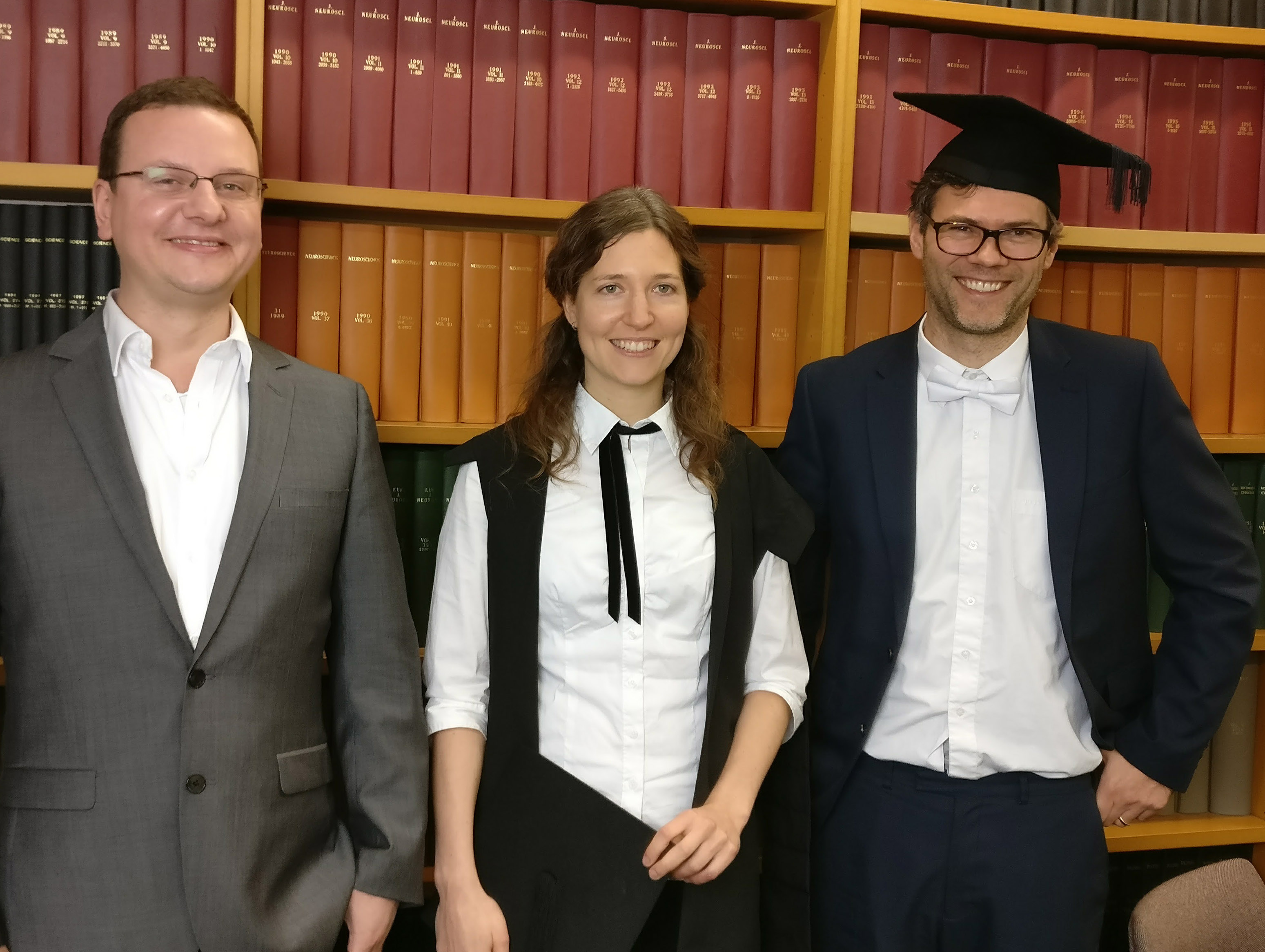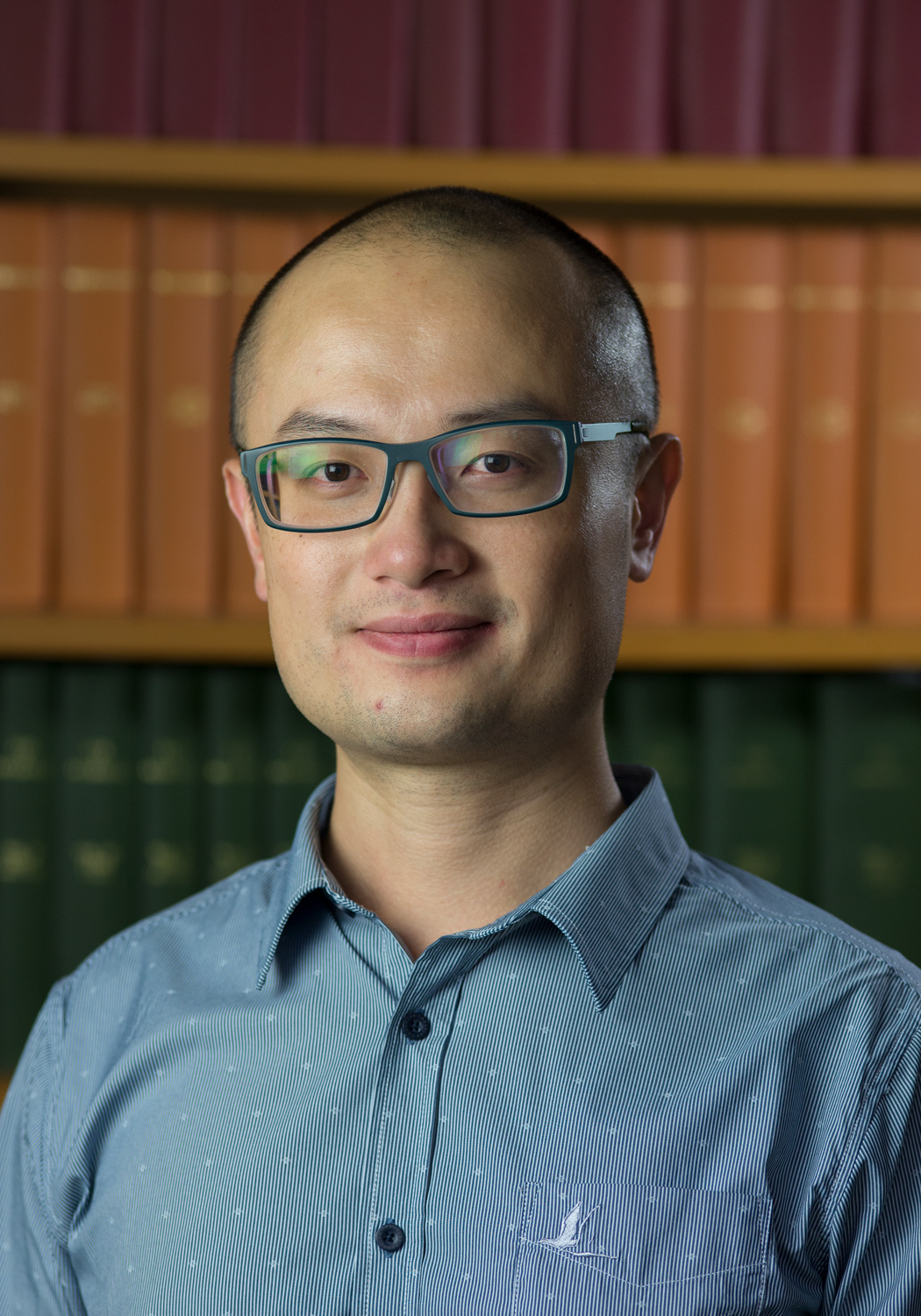
We are pleased to welcome Dr Chien-Hung Yeh to the Unit as a Postdoctoral Research Fellow in Professor Peter Brown’s Group.
Chien-Hung graduated from the National Central University, Taiwan, with a D.Phil. in Engineering. As part of Chien-Hung’s D.Phil. degree, he completed his thesis at the Research Center for Adaptive Data Analysis, where he used nonlinear approaches to analyze physical and biological signals, and developed effective biomarkers for clinical use. Thereafter, Chien-Hung continued his research at Harvard Medical School and Brigham and Women's Hospital, USA, working on the existence of spurious cross-frequency coupling in nonstationary and nonlinear signals, and identifying seizure dynamics in patients and circadian dynamics in animal models. After that, he worked with Dr Chiung-Chu Chen in Taiwan on oscillatory activity in the subthalamic nucleus, with special emphasis on gait disturbance.
In 2017, Chien-Hung was awarded a scholarship from the Postdoctoral Research Abroad Program in Taiwan to join the Unit. Chien-Hung will continue to research human gait, in collaboration with Dr Chiung-Chu Chen in Taiwan, as well as with Petra Fisher, Huiling Tan and Peter Brown in the Unit.
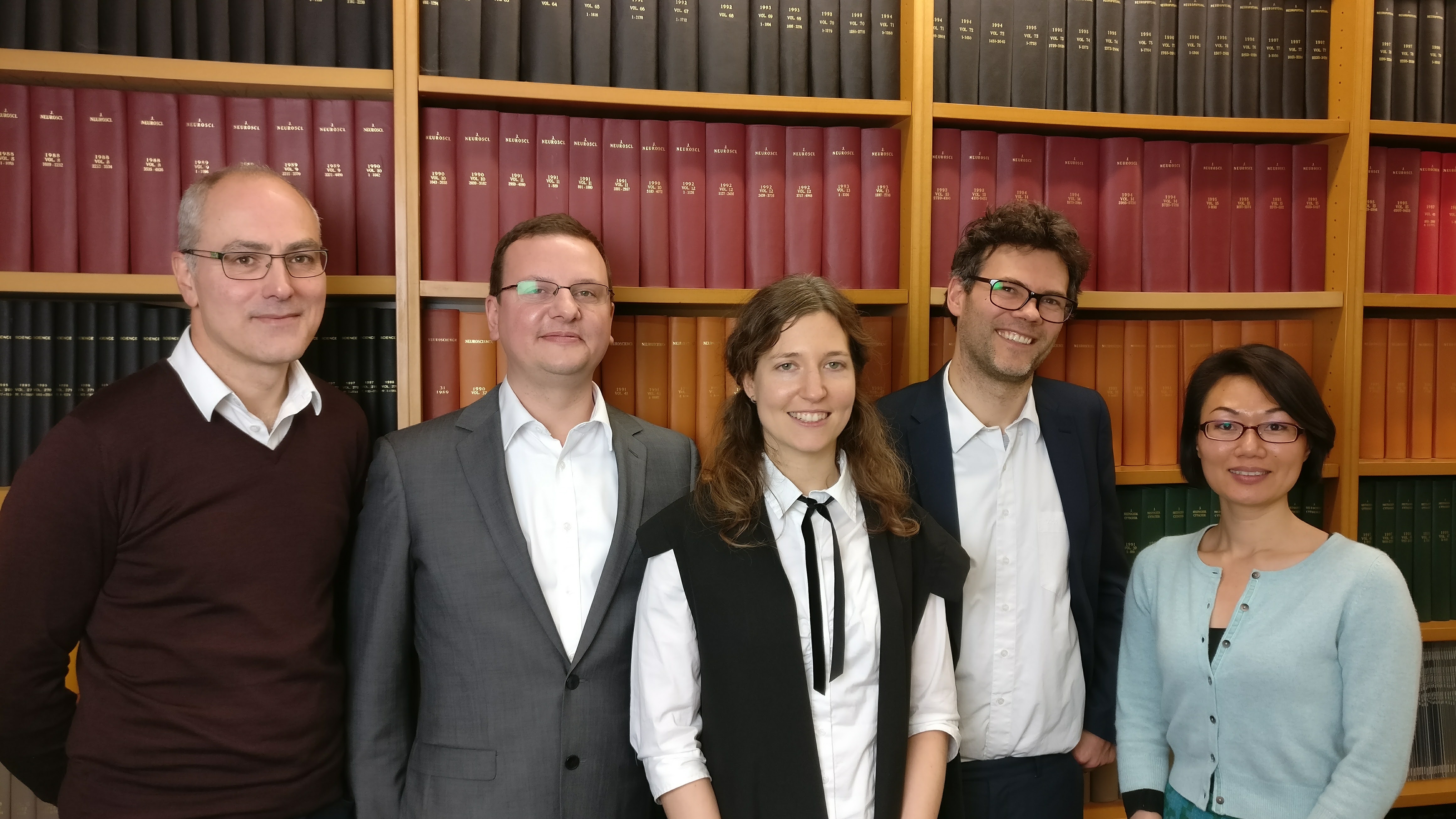
Our congratulations go to Unit D.Phil. student Petra Fischer for successfully defending her doctoral thesis, entitled "Neuronal dynamics of flexible motor control in the human subthalamic nucleus and cortex", in her viva voce examination on 6th November 2017.
Petra’s examiners were Dr Robert Schmidt (Department of Psychology, University of Sheffield) and Associate Professor Mark Stokes (Departments of Psychiatry and Experimental Psychology, University of Oxford).
Petra was supervised by Professor Peter Brown and Dr Huiling Tan.
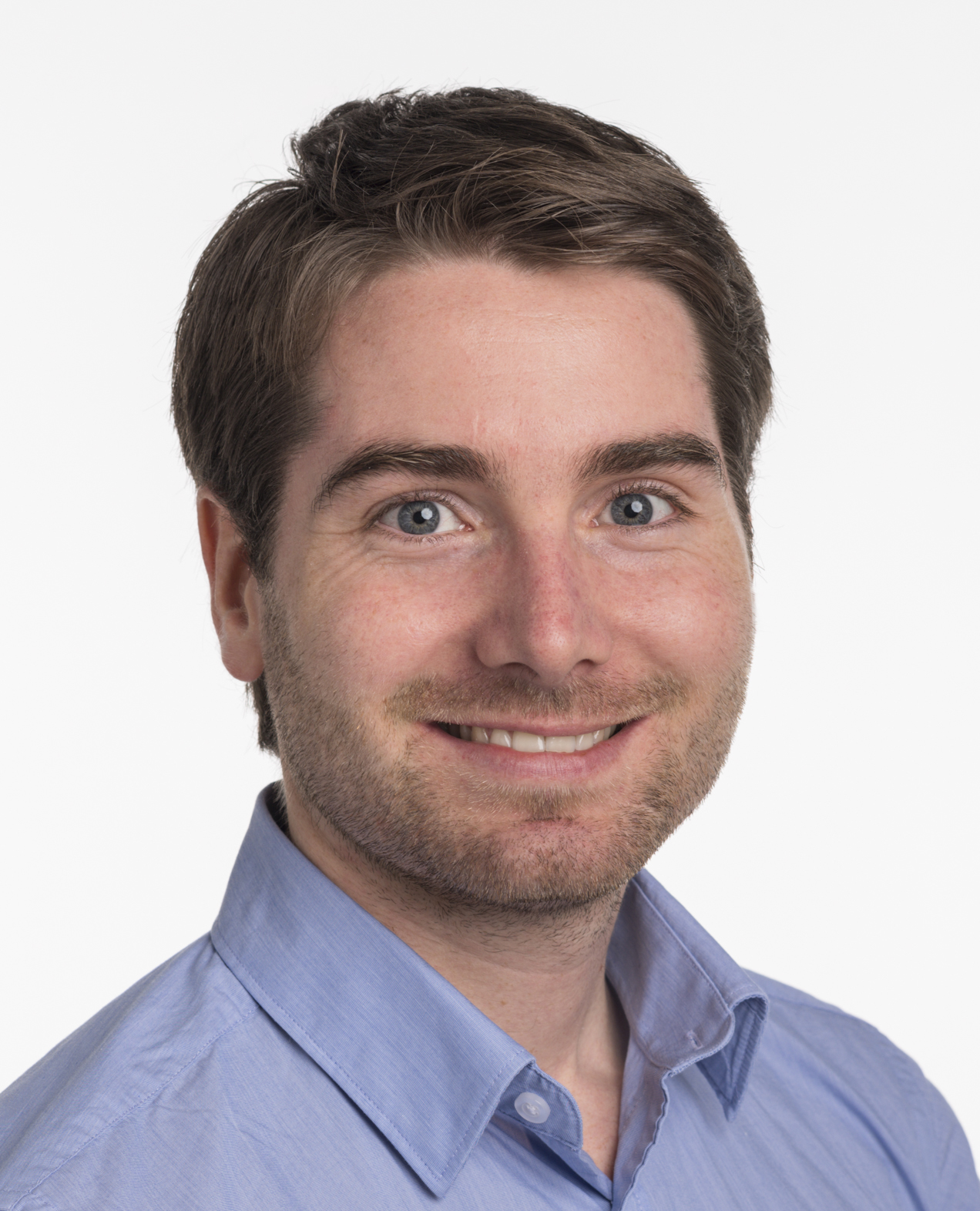
Congratulations to Unit scientist Dr Gerd Tinkhauser who has been awarded a prestigious grant from the Swiss Parkinson Association in support of his research project entitled “Electrophysiological recordings to optimise deep brain stimulation for Parkinson’s disease”. This project is a collaboration between the Unit and the Department of Neurology and Neurosurgery, University Hospital Bern, Switzerland.
Gerd joined the Unit after receiving a Research Training Fellowship from the European Academy of Neurology, and has already produced encouraging results for his new project.
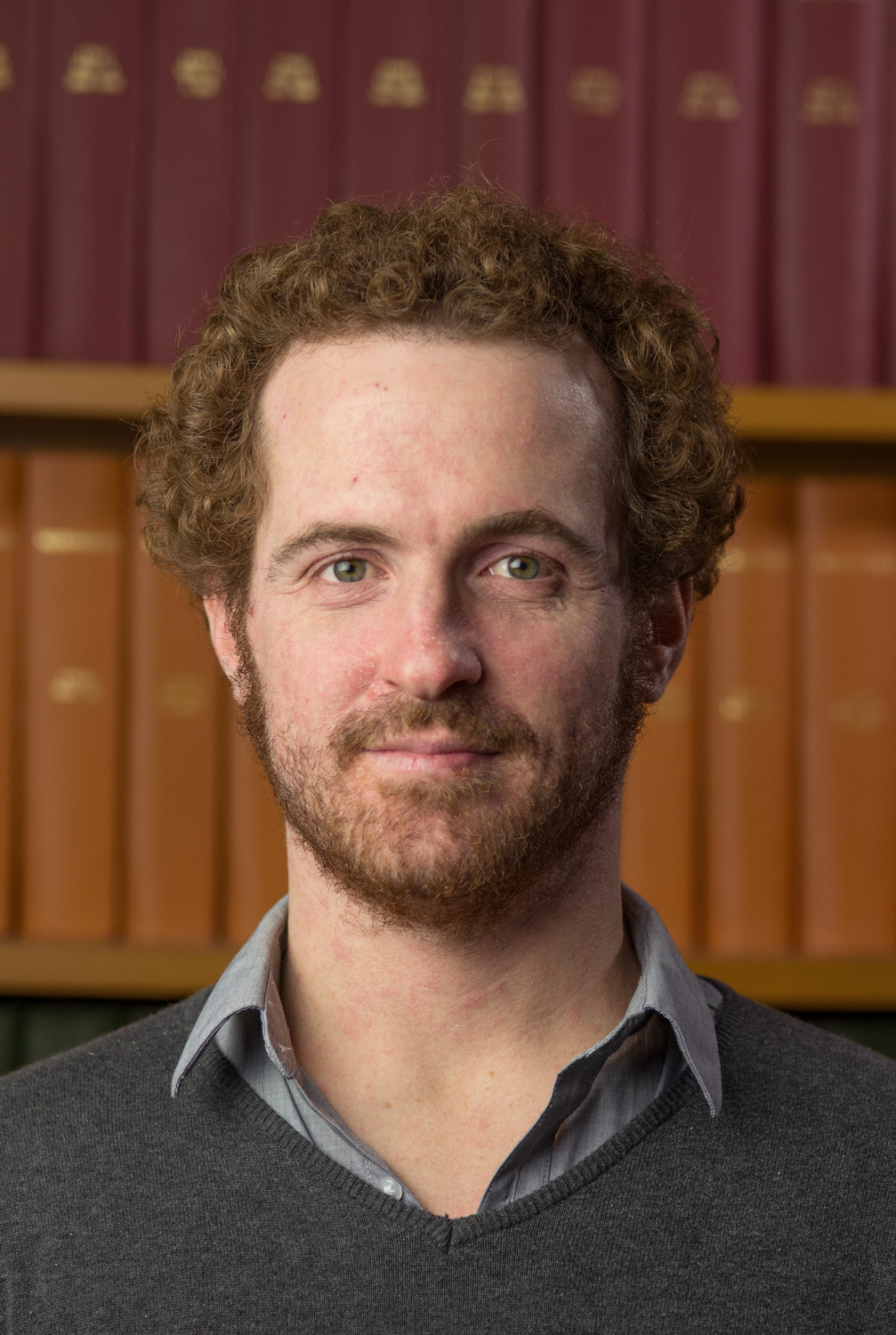
We are pleased to welcome Dr Julien Carponcy to the Unit as a Postdoctoral Neuroscientist in the Magill Group.
Julien originally graduated with a M.Sc. in Neurosciences, Behaviour and Cognition from the University of Toulouse, France. During Julien’s undergraduate studies, he completed two research internships in Toulouse, working on the involvement of hippocampal subregions in spatial and contextual memory. As part of a third research internship in Seville, Spain, Julien investigated the synchronization of brain oscillations within the limbic network during instrumental and observational learning. Julien then completed his Ph.D. at the Lyon Neuroscience Research Center, France, where he used behavioural tasks and in vivo electrophysiology to study the effects of different sleep stages on memory and synaptic plasticity.
Here in the Unit, Julien will be defining the functional organisation of the external globus pallidus, using a combination of in vivo electrophysiological recordings, cell-type-selective manipulations (optogenetics), and behavioural analyses, as well as ex vivo neuroanatomy.
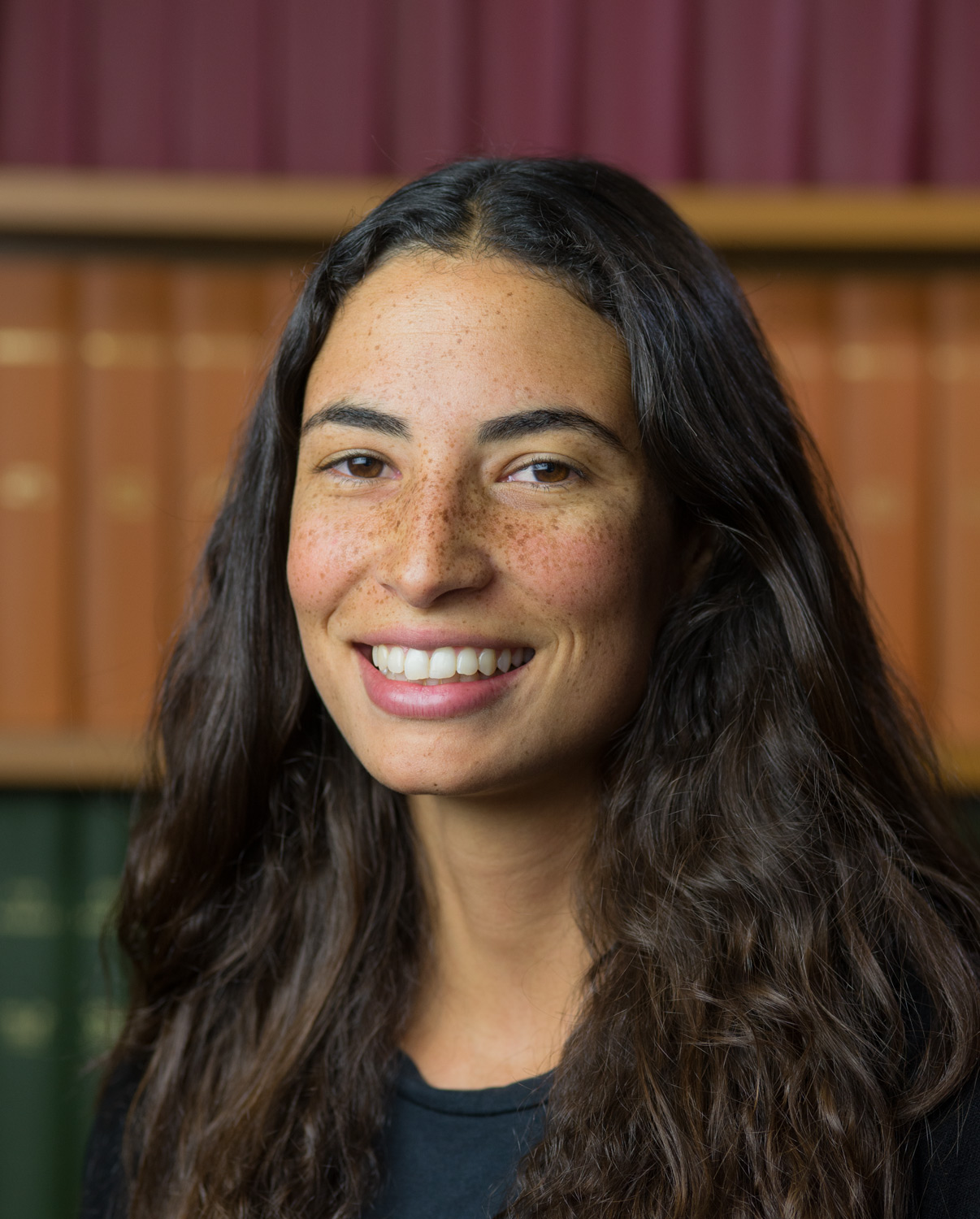
We are pleased to welcome Carolina Reis to the Unit as an MRC-funded D.Phil. student in Professor Peter Brown’s Group and Dr Andrew Sharott’s Group.
Carolina originally graduated from the Instituto Politecnico do Porto, Portugal, with a B.Sc. in Neurophysiology. As part of Carolina’s B.Sc. degree, she completed a research project at King’s College Hospital, where she used a combination of electrical stimulation and intracranial recordings to explore the neuronal mechanisms underlying seizure onsets. Subsequently, Carolina obtained an M.Res. at University College London, where she worked with Associate Unit Member Dr Hayriye Cagnan on biophysical models of cortico-thalamic interactions describing transient beta oscillations in experimental Parkinsonism.
In 2017, Carolina secured an MRC Industrial Strategy Studentship and joined the Unit. During her D.Phil. studies, Carolina will be working to optimise phase-specific Deep Brain Stimulation for conditions like Essential Tremor. Carolina will be working closely with Dr Hayriye Cagnan, Dr Andrew Sharott and Professor Peter Brown in the Unit, as well as with Dr Timothy Denison (VP of Research and Core Technology at Medtronic).
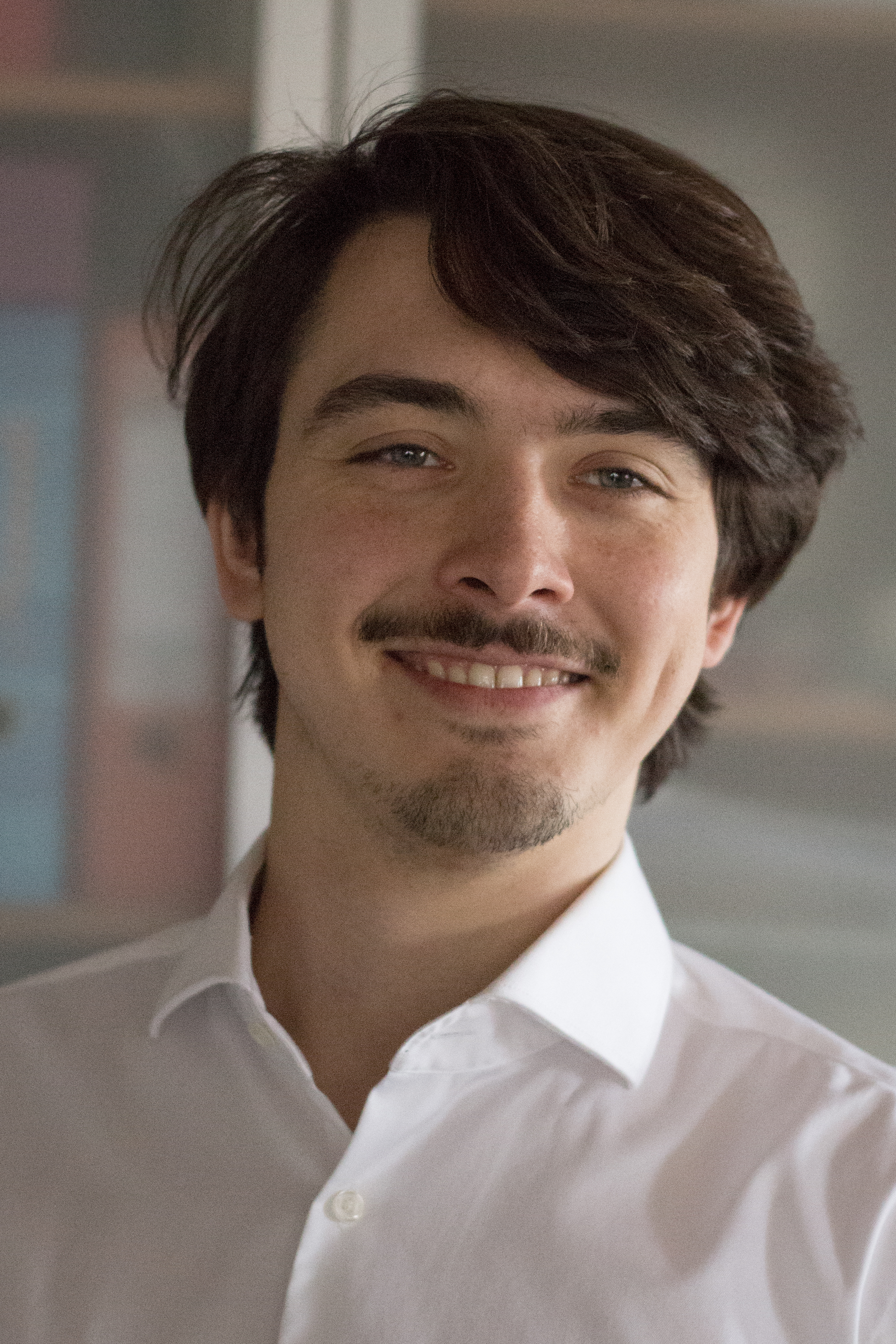
We are pleased to welcome Moritz Möller to the Unit as an MRC-funded D.Phil. student in Rafal Bogacz’s Group.
Moritz originally graduated with a B.Sc. in Physics from the Friedrich Alexander University in Erlangen, Germany, where he studied the generation of gravitational waves in a novel, post-Einsteinian theory of gravity. In 2017, Moritz completed a Master of Advanced Study (MA.St.) in Applied Mathematics at the University of Cambridge, from where he graduated with distinction. Whilst in Cambridge, Moritz wrote an essay on deep reinforcement learning, which sparked his interest in the mathematics of learning and decision making in the brain.
During Moritz’s D.Phil. thesis work in the Unit, we will pursue his interests in the mathematical formulation of cognition and learning. His research will be focused on decision processes in the basal ganglia, and aims to unify reinforcement learning with the drift-diffusion model.

We are delighted to welcome Roman Rothaermel back to the Unit as a Wellcome Trust-funded D.Phil. student in the Dupret Group.
As part of Roman’s recent M.Sc. in Neuroscience studies at the University of Oxford, he worked on a research project with Unit scientists Dr Gido van de Ven and Dr David Dupret to develop an unsupervised feature extraction framework for interneuron classification.
The goal of Roman’s new thesis research is to determine how the motivational state of an animal shapes its memory consolidation and retrieval on a large-scale systems level.

We are delighted to welcome Charlie Clarke-Williams back to the Unit as an MRC-funded D.Phil. student in the Dupret Group.
Charlie originally graduated with a B.A. in Neuroscience from the University of Oxford, during which he undertook a highly successful Final Honours School research project in the Unit under the supervision of Dr David Dupret. Charlie then completed an M.Res. degree at the University of Bristol, where he investigated the relationship between addiction and emotional disorders.
Charlie’s new thesis research in the Unit is focused on the assessment of neuronal network dynamics underlying drug-paired memories, and how these contribute to drug-seeking behaviours.
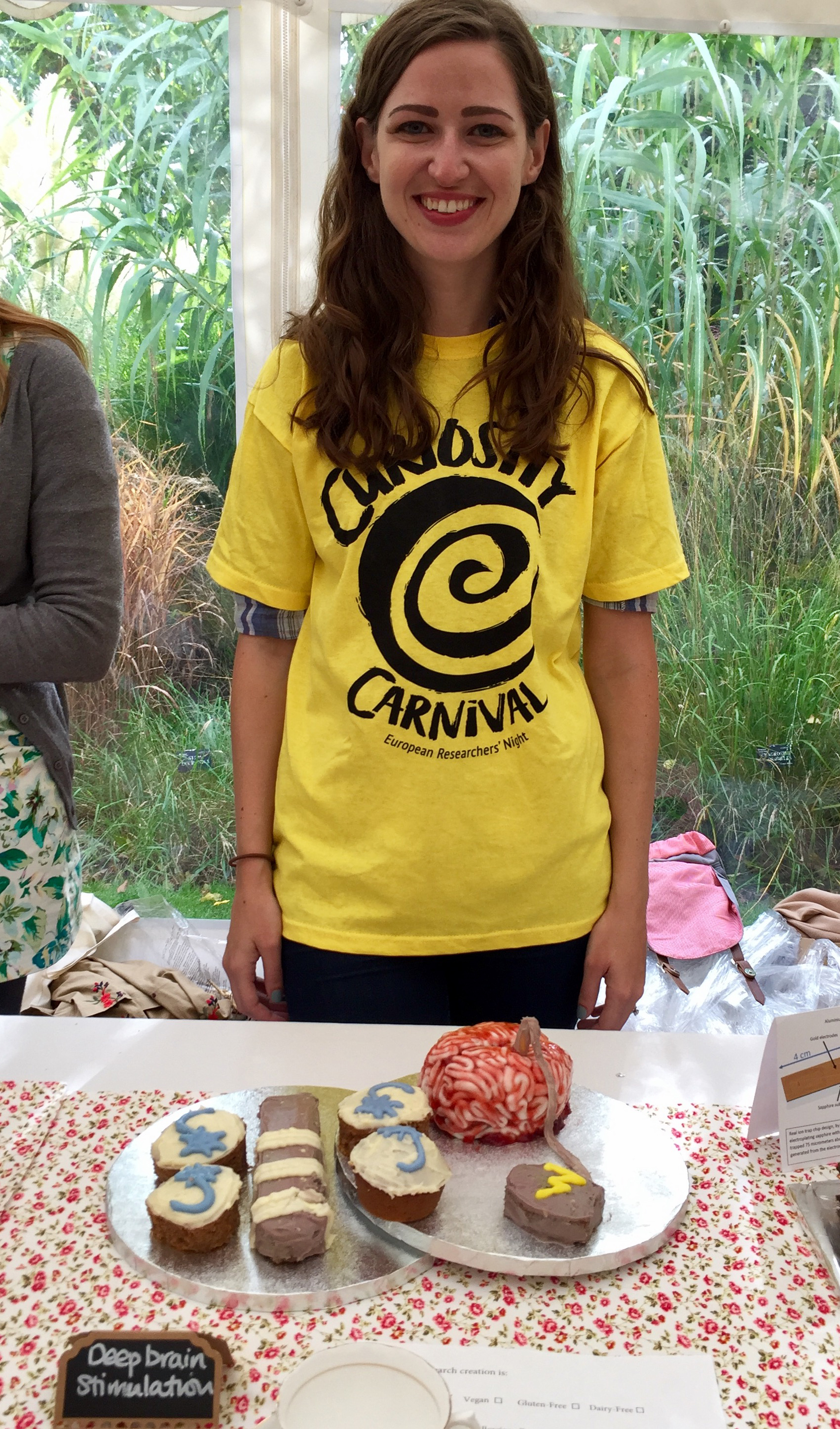
Last week, Unit scientist Dr Abbey Holt showcased her research on Deep Brain Stimulation - a form of therapy for Parkinson’s - at Oxford’s Curiosity Carnival, a diverse programme of public engagement activities held across the University and wider city.
Abbey participated in the ‘Great Research Bake-Off’, skilfully meeting the challenge of communicating the essence of her research through the use of cake!
After several hours of discussion with enthusiastic members of the public, Abbey and the other contestants shared their cakes for all to enjoy.
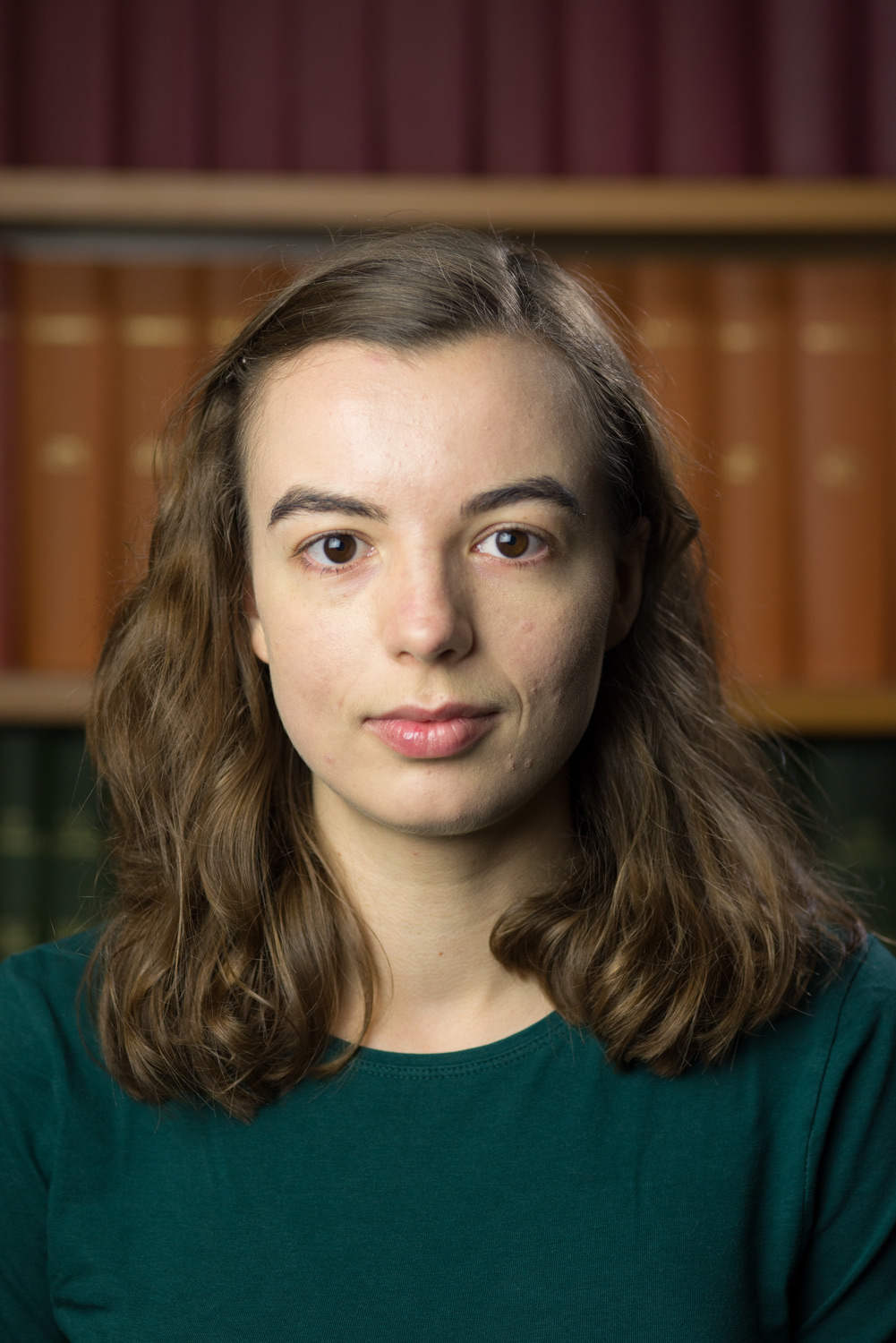
We are pleased to welcome Hayley Reeve to the Unit as a BBSRC-funded Research Technician working in Dr David Dupret’s Group. Hayley will be supporting the Group’s research into neuronal dynamics in the hippocampus, using a combination of behavioural, electrophysiological and optogenetic techniques.
Hayley graduated with an M.A. (hons.) degree in Psychology from the University of St Andrews in 2015, and stayed on to complete an M.Res. in Psychology, graduating in 2016. Hayley’s research at St Andrews focused on socioaffective behaviour in rats. In 2016, Hayley became a Research Technician at the University of Sussex, where she contributed to research on the neuronal substrates of appetitive conditioning in the prefrontal cortex.

